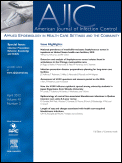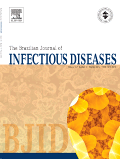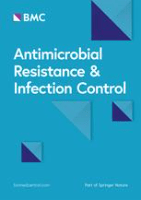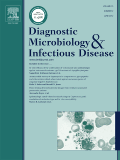
INFECTION CONTROL AND HOSPITAL EPIDEMIOLOGY
Scope & Guideline
Empowering Healthcare Through Rigorous Epidemiological Insights
Introduction
Aims and Scopes
- Infection Prevention and Control Strategies:
The journal publishes research on various infection prevention and control methodologies, including hand hygiene, use of personal protective equipment (PPE), and environmental cleaning protocols. - Epidemiology of Healthcare-Associated Infections:
It emphasizes the study of the epidemiology of infections acquired in healthcare settings, including surveillance and reporting of infection rates and risk factors. - Antimicrobial Stewardship:
Research on effective antimicrobial stewardship programs aimed at reducing inappropriate antibiotic use and combating antimicrobial resistance is a key focus area. - Emerging Infectious Diseases:
The journal covers emerging infectious diseases, particularly those affecting vulnerable populations and healthcare workers, with a focus on outbreak investigations and response strategies. - Health Disparities and Equity:
It addresses health disparities in infection rates and outcomes, promoting equitable healthcare practices and policies to reduce these disparities. - Innovative Technologies and Practices:
The journal facilitates discussions on innovative technologies and practices for infection control, including the use of rapid diagnostics and genomic surveillance.
Trending and Emerging
- COVID-19 Response and Management:
Research related to the management, transmission, and prevention of COVID-19 has surged, focusing on strategies to protect healthcare personnel and patients, as well as the impact of vaccination. - Integrated Antimicrobial Stewardship:
There is a growing trend towards integrated approaches in antimicrobial stewardship that combine clinical practice with public health initiatives, emphasizing the importance of collaboration across disciplines. - Health Equity and Disparities:
Emerging themes include a focus on health equity, examining how social determinants affect infection rates and outcomes, particularly among marginalized communities. - Use of Technology in Infection Control:
Innovations in technology, such as the application of artificial intelligence, telehealth, and advanced diagnostic tools, are increasingly featured as vital components of modern infection prevention strategies. - Environmental and Surface Contamination Studies:
There is heightened interest in research examining environmental contamination and its role in transmission dynamics, particularly regarding high-touch surfaces and the efficacy of various disinfection methods.
Declining or Waning
- Traditional Infection Control Practices:
There is a noticeable decline in studies focusing solely on traditional infection control practices without integration of modern technologies or approaches, as the field moves towards more evidence-based and technologically advanced solutions. - Single-Agent Studies:
Research centered on the effects of single pathogens in isolation is becoming less common, with a shift towards studying complex interactions among multiple pathogens and their resistance patterns. - Generalized Surveillance Protocols:
The emphasis on generalized surveillance protocols has waned in favor of more tailored, risk-based approaches that take specific healthcare settings and populations into account. - Static Guidelines for Infection Control:
Static guidelines without periodic updates or adaptations to current evidence and emerging threats are less frequently published, as there is a growing recognition of the need for flexibility and responsiveness in infection control strategies.
Similar Journals

AMERICAN JOURNAL OF INFECTION CONTROL
Connecting research and practice in infection prevention.The American Journal of Infection Control is a leading peer-reviewed publication dedicated to advancing the field of infection prevention and control. Published by Mosby-Elsevier, this journal has been a crucial resource since its inception in 1980, focusing on the intersection of infectious diseases, public health, and health policy. As of 2023, it holds an impressive Q1 ranking in both Health Policy and Public Health, Environmental and Occupational Health, while also achieving Q2 rankings in Epidemiology and Infectious Diseases. With an increasing impact factor and a strong reputation reflected in its Scopus rankings, the journal appeals to researchers, health professionals, and students committed to preventing the spread of infections and enhancing healthcare safety. Although it does not currently offer Open Access, the journal ensures broad dissemination of its vital research through various subscription options. By fostering interdisciplinary collaboration and evidence-based practices, the American Journal of Infection Control plays a pivotal role in shaping effective infection control policies and practices worldwide.

Brazilian Journal of Infectious Diseases
Unlocking the latest breakthroughs in infectious disease research.The Brazilian Journal of Infectious Diseases, published by Elsevier Brazil, is a premier open-access journal dedicated to advancing research and clinical practice in the field of infectious diseases. Since its inception in 2001, this journal has been pivotal in disseminating innovative studies and reviews that inform healthcare professionals and researchers alike. With an impressive impact factor reflected by its ranking in the second quartile for Infectious Diseases and third quartile for Medical Microbiology in 2023, the journal ranks #127 out of 344 in medicine – infectious diseases and #61 out of 140 in medical microbiology, showcasing its reputable standing in the scientific community. The Brazilian Journal of Infectious Diseases invites contributions that highlight significant findings, novel methodologies, and critical reviews aimed at enhancing patient care and public health initiatives. With an international readership and a focus on pressing issues in infectious diseases, it serves as an essential platform for knowledge exchange and collaboration among scholars and practitioners across Brazil and beyond. By reinforcing the importance of open access to scientific literature, this journal not only promotes transparency but also enhances the global discourse surrounding infectious diseases.

New Microbes and New Infections
Connecting global researchers to combat new infections.New Microbes and New Infections is an esteemed peer-reviewed journal published by Elsevier Sci Ltd that has been a prominent platform for disseminating groundbreaking research in the fields of Infectious Diseases and Microbiology since its establishment in 2013. With an impressive Open Access model, this journal ensures that vital research findings are readily accessible to researchers, healthcare professionals, and academics worldwide. Positioned in the Q2 category for Infectious Diseases and Q3 for Microbiology in 2023, it reaches a significant global audience, as demonstrated by its high Scopus rankings—#44 out of 344 in Medicine: Infectious Diseases, and #34 out of 182 in Immunology and Microbiology. The journal aims to inspire new ideas and foster collaborations by publishing high-quality research focused on novel microbes and infections, thus playing a crucial role in advancing science and public health in an era where understanding infectious agents is more vital than ever.

Infectious Diseases and Clinical Microbiology
Advancing knowledge in infectious diseases and microbiology.Infectious Diseases and Clinical Microbiology is a pivotal journal dedicated to advancing our understanding of infectious diseases through rigorous scientific research and clinical practices. Published by DOC DESIGN INFORMATICS CO LTD, this journal serves as a vital platform for researchers, healthcare professionals, and students keen on enhancing their knowledge of microbiological sciences and the clinical implications of infectious agents. With an ISSN of 2667-646X, it aims to disseminate significant findings in the field, enriching the scholarly dialogue surrounding infectious diseases. While currently operating under a traditional access model, the journal encourages global collaboration and knowledge sharing, striving to make a meaningful impact in tackling the challenges posed by infectious diseases. Its content aims to bridge the gap between laboratory research and clinical application, making it an essential resource in the contemporary landscape of global health.

Antimicrobial Resistance and Infection Control
Advancing the fight against antimicrobial resistance.Antimicrobial Resistance and Infection Control is a leading open access journal published by BMC, dedicated to the dissemination of research in the critical area of antimicrobial resistance and its impact on infection control practices. Since its inception in 2012, the journal has quickly established itself as a vital resource for researchers, healthcare professionals, and policymakers, featuring a robust array of studies that address the escalating threats posed by antimicrobial resistance across various contexts. With its impressive Q1 rankings across multiple categories—including Infectious Diseases, Microbiology, Pharmacology, and Public Health—the journal’s influence is underscored by its consistent placement in the upper echelons of academic research. Furthermore, it holds commendable ranks in Scopus, with percentiles placing it in the top tier of its respective fields. The journal serves as an essential platform for innovative research and discussions aimed at curbing the threats of antimicrobial resistance, thereby supporting the global health community in striving for effective solutions to safeguard public health.

Journal of Infection and Public Health
Elevating Public Health Discourse Through Cutting-Edge ResearchJournal of Infection and Public Health is a premier open-access journal published by ELSEVIER SCIENCE LONDON, dedicated to advancing knowledge in the fields of infectious diseases, public health, and environmental health. Since its inception in 2008, this esteemed journal has become a cornerstone of research dissemination, especially after transitioning to an open-access model in 2017, allowing wider accessibility to groundbreaking studies. With an impressive impact factor and ranking in the Q1 category for Infectious Diseases and Public Health as of 2023, the journal stands at the forefront of scientific inquiry, boasting a Scopus rank of #22 out of 665 in Public Health, underscoring its influence and reach in the academic community. Researchers, professionals, and students alike will find the journal's rich repository of peer-reviewed articles invaluable for ongoing education and practice in a rapidly evolving field. For contributing to the global understanding of health dynamics, Journal of Infection and Public Health is a vital resource, inviting scholars to explore, engage, and contribute to the crucial discussions shaping our world.

DIAGNOSTIC MICROBIOLOGY AND INFECTIOUS DISEASE
Transforming Knowledge into Action Against InfectionsDIAGNOSTIC MICROBIOLOGY AND INFECTIOUS DISEASE, published by Elsevier Science Inc, is a leading journal in the fields of Infectious Diseases, Microbiology, and Medicine. Since its inception in 1983, this esteemed journal has consistently provided a platform for original research and comprehensive reviews that advance the understanding of diagnostic microbiology and its implications for infectious diseases. With an impressive impact factor placing it in the Q2 category in multiple relevant fields as of 2023, it stands out with Scopus rankings reinforcing its significance in academia, ranking #136 out of 344 in Infectious Diseases and #64 out of 140 in Medical Microbiology. This journal is essential for researchers, healthcare professionals, and students who seek to stay abreast of the latest developments and trends in infectious diagnostics. DIAGNOSTIC MICROBIOLOGY AND INFECTIOUS DISEASE is committed to fostering excellence in research quality and academic rigor, ensuring accessibility to vital knowledge for addressing some of the most pressing health challenges of our time.

Current Infectious Disease Reports
Illuminating the Path of Infectious Disease DiscoveryCurrent Infectious Disease Reports, published by SPRINGER, is a leading journal dedicated to advancing knowledge in the field of infectious diseases. With an ISSN of 1523-3847 and an E-ISSN of 1534-3146, this peer-reviewed journal has established itself as a vital resource for researchers and healthcare professionals since its inception in 1999. The journal's impact in the academic community is underscored by its Q1 ranking in Infectious Diseases for 2023, placing it in the top quartile of influential journals in the field. Furthermore, it holds a respectable position at rank #95 out of 344 in the Scopus database, reflecting its substantial contribution to medicine and public health. While currently not an open access journal, it offers a wealth of articles covering the latest research, case studies, and reviews, making it an indispensable tool for those aiming to stay at the forefront of infectious disease science. As we navigate an era marked by emerging and re-emerging infectious threats, Current Infectious Disease Reports remains committed to providing high-quality, relevant research that supports evidence-based practice and informs future studies globally.

Infectious Disease Reports
Exploring innovative solutions for a healthier tomorrow.Infectious Disease Reports is a premier open-access journal published by MDPI, dedicated to advancing the field of infectious diseases. Since its inception in 2009, this journal has established itself as a significant platform for disseminating cutting-edge research, reviews, and case studies, critical for global health. With a commendable Q2 ranking in the category of Infectious Diseases and a Scopus rank of #140 out of 344, it is recognized for its impactful contributions to medical research, holding a 59th percentile in its field. The journal aims to provide comprehensive insights into various dimensions of infectious diseases, ranging from epidemiology to novel treatment modalities. As an open-access publication, Infectious Disease Reports ensures that its articles are freely available to a wide audience, fostering collaborative efforts among researchers, healthcare professionals, and students worldwide. With its ongoing commitment to excellence, the journal plays an essential role in shaping the future of infectious disease research.

Klimik Journal
Advancing Infectious Disease Insights.Klimik Journal is a pivotal publication in the fields of Infectious Diseases and Medical Microbiology, serving as a platform for researchers, clinicians, and academics to disseminate groundbreaking findings and improve health outcomes. Established in 2010 and published by DOC DESIGN INFORMATICS CO LTD, this journal is dedicated to advancing knowledge and fostering discussions around critical issues in infectious diseases and microbial research. With an ISSN of 1301-143X and an E-ISSN of 1309-1484, Klimik Journal strives to maintain high academic standards despite currently ranking in the fourth quartile in both categories according to Scopus metrics, which highlights the need for continued contributions to the field. Operating from Turkey, the journal is committed to supporting open access options, thereby ensuring wide dissemination of research findings. As it continues to bridge the gap between theory and practice, Klimik Journal is poised to become an essential resource for those looking to stay at the forefront of infectious disease research and microbiological advancements.